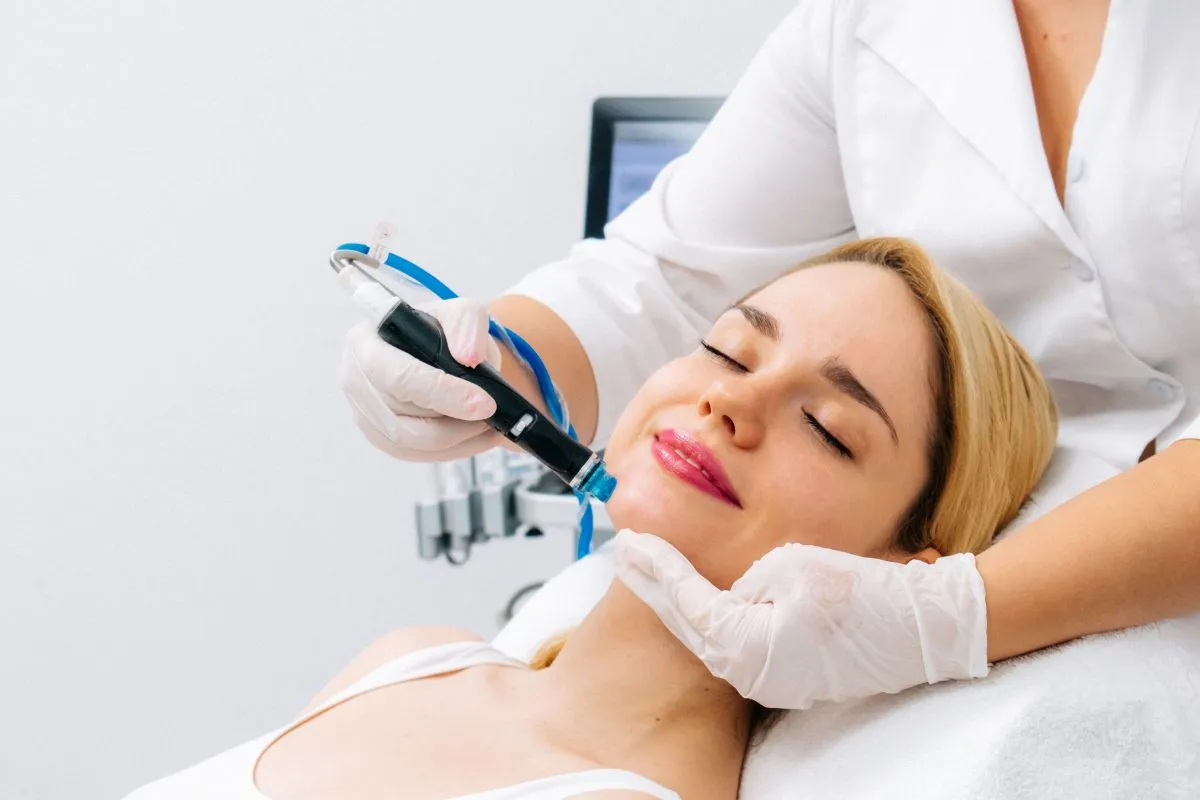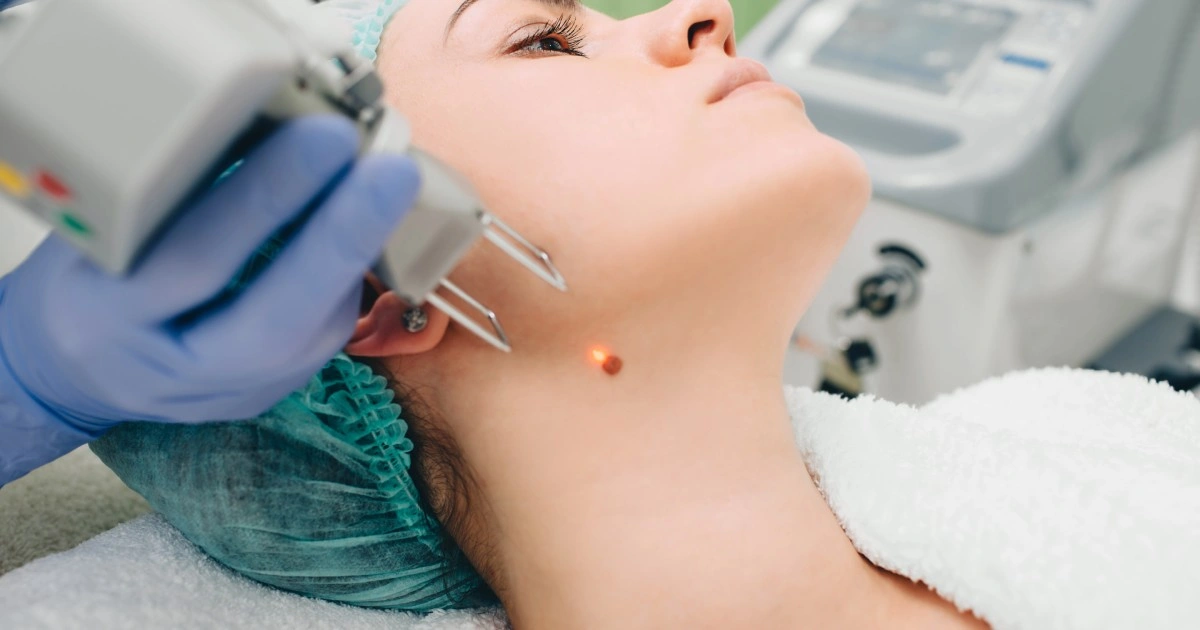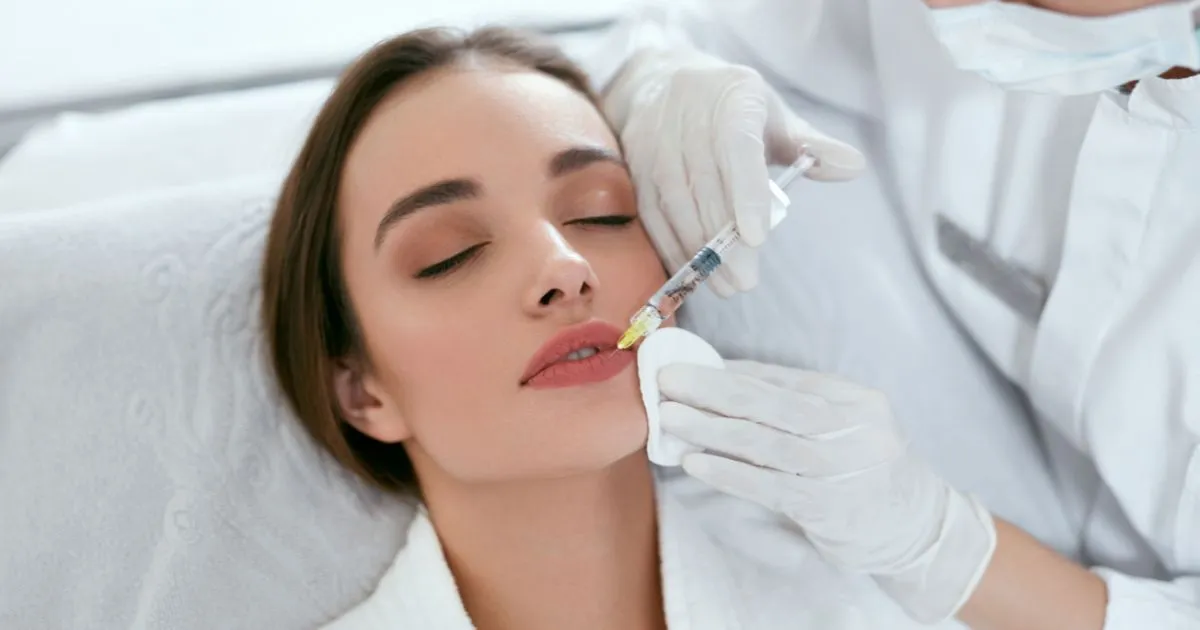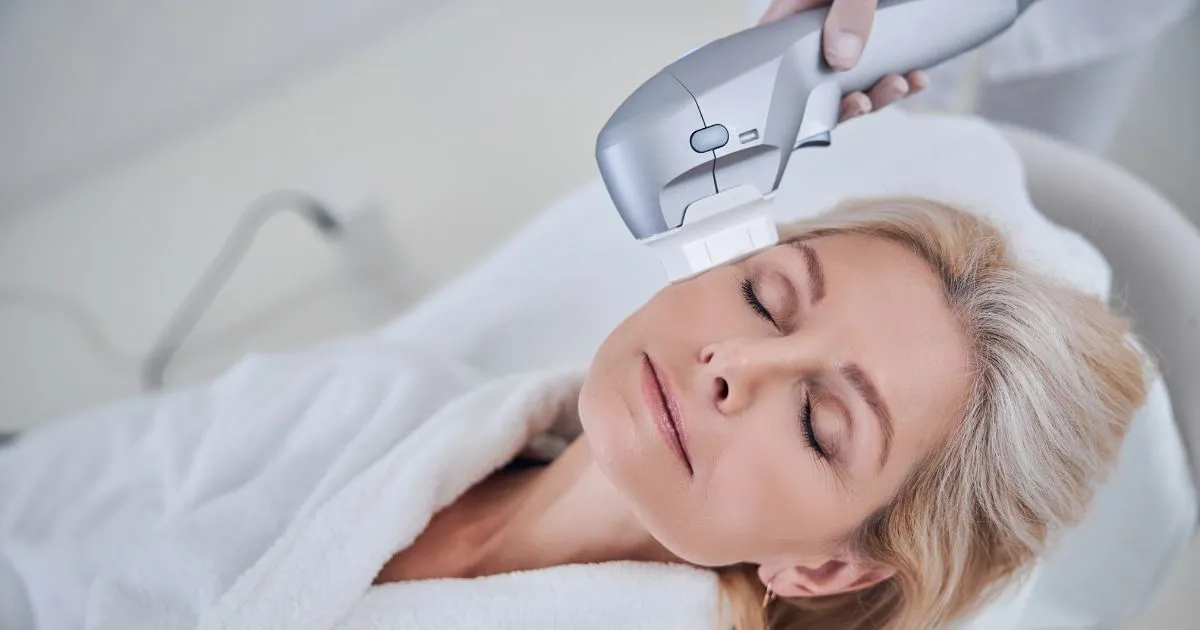Table of Contents
Rosacea is a common, long-term skin condition that many adults face. It often brings redness, pimples, and visible blood vessels, particularly affecting the face. If you’re dealing with rosacea, you know how challenging it can be. The redness and inflammation affect your skin’s appearance and can be uncomfortable and sometimes painful. While there isn’t a cure for rosacea, the good news is that there are effective ways to manage it and keep your skin looking healthy and youthful.
Struggling with facial redness, bumps, and flare-ups? Discover how to manage rosacea with expert-backed strategies and cutting-edge dermatological treatments. Rosacea affects over 14 million Americans and often goes undiagnosed. Understanding what it is—and what it isn’t—is the first step to managing this chronic skin condition.
What is Rosacea?
Rosacea primarily affects facial skin, resulting in persistent redness, visible blood vessels, and, sometimes, acne-like bumps. This chronic condition can fluctuate, with periods of exacerbation and remission. Without proper management, rosacea can lead to more pronounced symptoms, including skin thickening, particularly around the nose (rhinophyma), and ocular complications. Rosacea doesn’t develop overnight. Multiple factors—ranging from genetics to environmental influences—play a role in triggering symptoms.
Risk Factors for Rosacea
Knowing these risk factors can help you take proactive steps to manage your rosacea more effectively. Tailoring your skincare routine and lifestyle choices to address these factors can lead to better control of your symptoms and overall skin health.
Genetic Factors
- Family History: If you have close relatives with rosacea, you may be more prone to developing the condition yourself. Several studies indicate that genetics may play an essential element in the onset of rosacea, suggesting that the condition may run in families.
Blood Vessel Dysfunction
- Vascular Abnormalities: People with rosacea often experience issues with blood vessels in their facial skin. These blood vessels may dilate too quickly, leading to persistent redness and visible veins. The dysfunction can cause frequent flushing and blushing, which are characteristic of rosacea.
Excess Skin Mites
- Demodex Mites: These microscopic mites naturally live on human skin, typically without causing problems. However, individuals with rosacea tend to have a higher density of Demodex mites, particularly around the nose and cheeks. The presence of these mites may contribute to inflammation and worsen rosacea symptoms.
Gut Bacteria Imbalance
- Microbiome Disruption: An imbalance in gut bacteria has been linked to various skin conditions, including rosacea. The gut-skin connection suggests that a healthy gut microbiome is essential for skin health. Disruptions in this balance can trigger or exacerbate rosacea symptoms.
Lifestyle Factors
- Smoking: Several studies have shown that smoking may trigger rosacea. Blood vessels and skin cells can be impaired by the chemical compounds in cigarettes, resulting in redness and inflammation.
- Diet: People who suffer from rosacea may experience flare-ups after eating spicy foods, drinking hot drinks, or drinking alcohol. Monitoring and adjusting your diet can help manage symptoms.
Demographic Factors
- Gender and Age: Women between 30 and 50 are more likely to develop rosacea. Hormonal fluctuations during these years may contribute to the onset and severity of the condition.
- Skin Type: People with fair skin, light hair, and light-coloured eyes are more susceptible to rosacea. The condition is more commonly seen in individuals of Northern European descent.
Environmental and Emotional Triggers
- Sun Exposure: UV radiation from the sun can aggravate symptoms of rosacea. You can mitigate this risk by wearing protective clothing and broad-spectrum sunscreen.
- Stress: Emotional stress can trigger rosacea. Various stress management approaches, such as meditation, yoga, and deep breathing exercises, are practical prospects for preventing flare-ups.
- Weather Conditions: Extreme temperatures, wind, and humidity can influence rosacea symptoms. Protecting your skin from harsh weather can help control the condition.
Effective rosacea management begins at home. A consistent, gentle routine can dramatically reduce flare-ups and maintain skin health between dermatology visits.
Home Care for Rosacea
Managing rosacea effectively at home involves identifying triggers, using the right skincare products, and incorporating lifestyle changes. Here are some detailed strategies for taking care of your rosacea at home:
Identify and Avoid Triggers
- Keep a Diary: Track your food, activities, and environmental exposures to identify what triggers your rosacea flare-ups. Common triggers include sun exposure, stress, intense exercise, spicy foods, and alcohol.
- Modify Your Habits: Once you’ve identified your triggers, avoid them. For example, reduce sun exposure, manage stress, and adjust your diet and exercise routines.
Daily Skincare Routine
- Gentle Cleansing: Use a mild, non-irritating cleanser to wash your face. Avoid harsh soaps and scrubbing, which can aggravate rosacea.
- Moisturizing: To keep your skin hydrated, apply a fragrance-free moisturizer. Look for products specifically formulated for sensitive skin.
- Sunscreen: Wear a broad-spectrum sunscreen with at least an SPF of 30 to protect your skin every day. Physical blockers like zinc oxide or titanium dioxide are less likely to irritate it.
- Choosing the Right Products: Opt for skincare products that contain soothing ingredients such as niacinamide, chamomile, and green tea extract. Avoid products with alcohol, fragrances, and other irritants.
Stress Management
- Relaxation Techniques: Relaxation methods such as meditation, yoga, and deep breathing can help manage stress and reduce flare-ups.
- Routine Adjustments: Incorporate regular relaxation activities into your daily routine to help maintain calm and reduce rosacea symptoms.
Sun Protection
- Daily Sunscreen Use: Apply sunscreen every morning, regardless of the weather. If you’re outdoors, reapply every two hours.
- Protective Clothing: Wear wide-brimmed hats, sunglasses, and long sleeves when spending extended time outside.
Adapted Exercise Plans
- Low-Impact Activities: Choose exercises that are less likely to cause overheating and flushing, such as walking, swimming, or yoga.
- Relaxed Environment: Whenever possible, exercise in a calm environment or during more excellent parts of the day to minimize the risk of a flare-up.
Looking for professional-grade relief from persistent rosacea symptoms? Dermatologist-recommended treatments like IPL and HydraFacials may offer the breakthrough you need.
Advanced Treatments for Rosacea
Advanced therapies such as IPL (Intense Pulsed Light) and HydraFacials can offer substantial improvements for individuals seeking more intensive treatment options. These treatments go beyond standard skincare routines and significantly relieve rosacea symptoms. Here’s a detailed look at these advanced treatments:
IPL (Intense Pulsed Light) Treatments
- How IPL Works: IPL treatments use broad-spectrum light to target and reduce the appearance of blood vessels and redness in the skin. The light energy seeps into the skin and is soaked by the blood vessels, causing them to constrict and eventually be reabsorbed by the body.
- Benefits of IPL:
- Reduces facial redness and visible blood vessels.
- Improves overall skin tone and texture.
- Minimizes flushing and blushing episodes.
- It can also address sun damage and age spots.
- Benefits of IPL:
HydraFacials
- How HydraFacials Work: HydraFacials use a patented device to cleanse, exfoliate, and infuse the skin with hydrating and soothing serums. The treatment involves multiple steps, including vortex extraction and vortex fusion, which ensure deep cleansing and effective infusion of beneficial ingredients.
- Benefits of HydraFacials:
- Provides deep hydration and nourishment to the skin.
- Reduces inflammation and redness associated with rosacea.
- Improves skin texture and overall complexion.
- It can be customized to target specific concerns and is gentle enough for sensitive skin.
- Benefits of HydraFacials:
Takeaway
If you’re struggling with rosacea and looking for effective ways to manage and improve your skin, Outer Banks Dermatology is here to help. Our skincare specialists provide personalized treatment plans based on your specific needs. From advanced therapies like IPL and HydraFacials to comprehensive skincare advice, we have the expertise and tools to help you achieve healthier, clearer skin. Contact us today for your assessment.
Early intervention and consistent care can significantly reduce flare-ups and improve your skin’s resilience over time. Our team stays up to date on the latest dermatological advancements to ensure you’re receiving care that’s both safe and scientifically supported. Let us help you take control of your skin with a tailored plan designed to restore your comfort and confidence.







